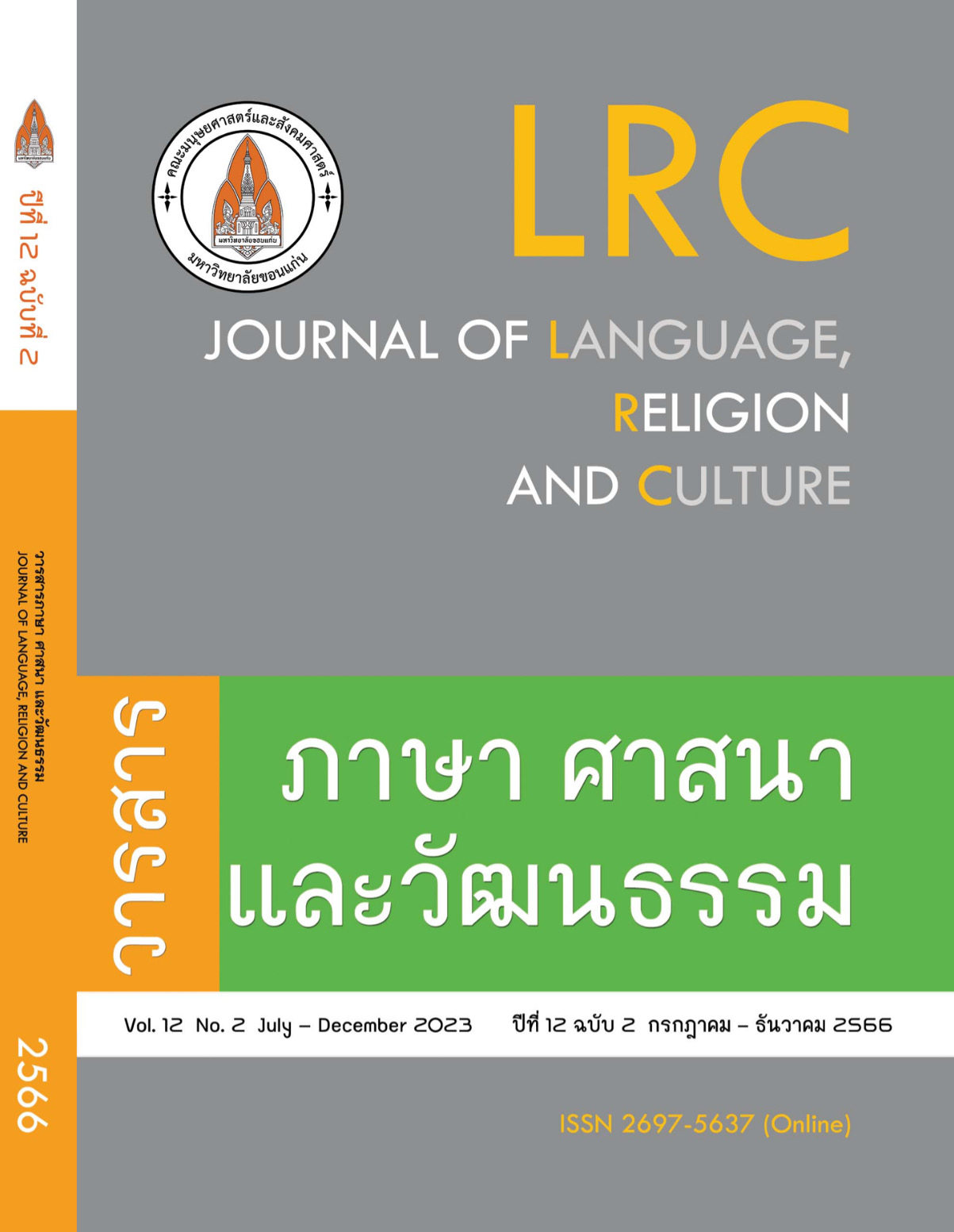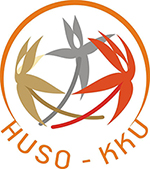การสะสมทุนสังคมในถิ่นปลายทางของแรงงานอีสานย้ายถิ่นกลับจากต่างประเทศ
การสะสมทุนสังคมในถิ่นปลายทางของแรงงานอีสานย้ายถิ่นกลับจากต่างประเทศ
คำสำคัญ:
การสะสมทุนสังคม, การย้ายถิ่นระหว่างประเทศ, ถิ่นปลายทาง, แรงงานย้ายถิ่นบทคัดย่อ
บทความนี้มุ่งศึกษาการสะสมทุนสังคมในถิ่นปลายทางและปัจจัยที่มีอิทธิพลต่อการสะสมทุนสังคมในถิ่นปลายทางของแรงงานอีสานย้ายถิ่นกลับจากต่างประเทศ ใช้ระเบียบวิธีวิจัยแบบผสม มีหน่วยวิเคราะห์ระดับปัจเจก เก็บข้อมูลเชิงคุณภาพด้วยวิธีการสัมภาษณ์เชิงลึกกับแรงงานย้ายถิ่นกลับจากต่างประเทศ จำนวน 31 คน และเก็บข้อมูลเชิงปริมาณกับกลุ่มตัวอย่างได้แก่ แรงงานย้ายถิ่นกลับจากต่างประเทศในภาคตะวันออก เฉียงเหนือ ประเทศไทย จำนวน 420 คน ในพื้นที่จังหวัดชัยภูมิ ภาคตะวันออกเฉียงเหนือของไทย ด้วยแบบสัมภาษณ์ที่ผ่านการตรวจสอบความถูกต้องเชิงเนื้อหา และมีค่าความเชื่อมั่น 0.902 วิเคราะห์ข้อมูลด้วยการวิเคราะห์เชิงเนื้อหา สถิติพรรณนาและการวิเคราะห์ถดถอยพหุคูณ ผลการวิจัยพบว่า แรงงานอีสานย้ายถิ่นกลับส่วนใหญ่เป็นชาย มีอายุเฉลี่ย 40.3 ปี กว่า 1 ใน 3 จบการศึกษาระดับประถมศึกษา ส่วนใหญ่ย้ายถิ่นไปทำงานต่างประเทศครั้งล่าสุด 3-5 ปี ผ่านบริษัทจัดหางานและทำงานในกลุ่มประเทศตะวันออก มีการสะสมทุนสังคมในถิ่นปลายทางด้วยการสร้างและรักษาความไว้ใจ สร้างการยอมรับ และช่วยเหลือเกื้อกูลระหว่างกัน กับเครือข่ายทางสังคมกับเครือญาติและชุมชน นายจ้างและเพื่อนร่วมงาน และกลุ่ม/องค์กรในต่างประเทศ โดยแรงงานย้ายถิ่นกลับสะสมทุนสังคมได้ในระดับปานกลาง ร้อยละ 62.4 และราว 1 ใน 3 สะสมทุนสังคมในระดับสูง นอกจากนี้ยังพบว่าจำนวนปีที่ศึกษา การย้ายถิ่นแบบถูกกฎหมาย ทัศนคติต่อการย้ายถิ่นไปทำงานต่างประเทศ และความคาดหวังประโยชน์จากการย้ายถิ่นไปทำงานต่างประเทศ มีอิทธิพลต่อการสะสมทุนสังคมในถิ่นปลายทาง โดยตัวแปรอิสระทั้งหมดสามารถอธิบายความผันแปรของการสะสมทุนสังคมในถิ่นปลายทาง ได้ร้อยละ 34.6 (R2=0.346)
เอกสารอ้างอิง
Arcidiacono, P., Joseph Hotz, V., Maurel, A. and Romano, T. (2020). Ex ante Returns and Occupational Choice. Journal of Political Economy, 128, 4475–4522.
Auraiampai, N., Ayuwat, D., Jampaklay, A. and Onaka, F. (2023). Entrepreneurial Processes of Thai Female Returning Migrants. Comparative Sociology, 22(5), 717-739.
Ayuwat, D. (2019). “The Isan Migrants on the Moves” Situations and Impacts. Khon Kaen: Klangnanawittaya. [in Thai]
Ayuwat, D. and Chamaratana, T. (2013). The role of labour broker networks in setting the price of working abroad for Thai migrant workers. Asia-Pacific Population Journal, 28(2), 51-68.
Ayuwat, et al. (2019). Factors Influencing the Happiness of Migrant Labour households in the Northeast, Thailand. International Journal of Recent Technology and Engineering, 8(1C2), 875-883.
Bebbington, A. (2021). Capitals and Capabilities: A Framework for Analyzing Peasant Viability, Rural Livelihoods and Poverty. World Development, 27(12), 2021-2044.
Bourdieu, P. (1984). Distinction: A Social Critique of the Judgement of Taste. Paris: Harvard University Press.
Bourdieu, P. and Wacquant, L. (1992). An Invitation to Reflexive Sociology. Oxford: Marston Book Services.
Carmo. R.M. and Hedberg, C. (2019). Translocal mobility systems: social inequalities and flows in the wild berry industry. Geoforum, 99(1), 102-110.
Coleman, D. (1988). The demographic effects of international migration in Europe. Oxford Review of Economic Policy, 24(3), 452-476.
Crescenzi, R., Holman, N. and Orru’, E. (2017). Why do they return? Beyond the economic drivers of graduate return migration, Ann Reg Scim, 59, 603–627. https://doi.org/10.1007/s00168-016-0762-9
Creswell, J. W. (2009). Research Design: Qualitative, Quantitative, and Mixed Methods Approaches (3rd ed.). Thousand Oaks, CA: Sage Publications.
De Jong, G.F. and Gardner, R.W. (1981). Migration Decision Making. New York: Pergamon Press.
DFID. (1999). Sustainable Livelihoods and Poverty Elimination. London: Department for International Development (DFID).
Hair, J.F., et al. (2018). Advanced Issues in Partial Least Squares Structural Equation Modeling. LA: Sage Publishing.
Hanifan, L. J. (1920). The community center. Boston: Silver Burdett.
Hendriks, M. and Bartram, D. (2019). Bringing Happiness into the Study of Migration and Its Consequences: What, Why, and How? Journal of Immigrant & Refugee Studies, 17(3), 279-298, DOI: 10.1080/15562948.2018.1458169
Huguet, J. W., et al. (2017). Thailand Migration Report 2017. Nakhon Pathom: Institute for Population and Social Research, Mahidol University.
Institute for Population and Social Research, Mahidol University. (2015). Glossary of Population and Social Research. Nakhon Phathom: Institute for Population and Social Research, Mahidol University. [in Thai]
Lee, E.S. (1966). A Theory of Migration. Demography, 3(1), 47-57.
Matthews, R. B., Robertson, T. J. and Griffin, M. (2018). Illegal Immigration: A World-Class Solution. Journal of Diversity Management, 8(11), 31-38.
Mazziotta, M. and Pareto, A. (2013). Methods For Constructing Composite Indices: One For All Or All For One? Journal of Economic, Demographic and Statistical Studies, 67(2), 67-80.
Ministry of Labour (2014). How to travel to work abroad of Thai workers. Bangkok: Ministry of Labour. [in Thai]
National Economic and Social Development Council. (2022). The 13th National Economic and Social Development Plan 2022-2026. Bangkok: Office of the National Economic and Social Development Council. [in Thai]
National Statistical Office. (2021). Summary for the Executives of the Population Migration Survey 2021. Bangkok: National Statistical Office. Prime Minister's Office. [in Thai]
Overseas Employment Administration Division. (2019). Number of foreign workers and the remittance of migrant workers for the year 2019. Bangkok: Overseas Employment Administration Division. [in Thai]
Overseas Employment Administration Division. (2022). Number of foreign workers and the remittance of migrant workers for the year 2022. Bangkok: Overseas Employment Administration Division. [in Thai]
Putnam, R. D. (1993). ‘Tuning in, Tuning out: The Strange Disappearance of Social Capital in America’, Political Studies, 28(4), 664–83.
Putnam, R.D. (2001). Social Capital: Measurement and Consequences. Canadian Journal of Policy Research, 2001(2), 41-51.
Putnam, R. D., (2002). Democracies in Flux. The Evolution of Social Capital in Contemporary Society. New York: Oxford University Press.
Smith, R., Spaaij, R., and McDonald, B. (2019). Migrant integration and cultural capital in the context of sport and physical activity: A systematic review. Journal of international migration and integration, 20, 851-868.
Teddlie, Ch. and Tashakkori, A. (2009). Foundations of Mixed Methods Research: Integrating Quantitative and Qualitative Approaches in the Social and Behavioral Sciences. Thousand Oaks, California: Sage Publications, Inc.
United Nations. (1998). World Population 1998. New York: United Nations.
Wahlbeck, Ö. and Fortelius, S. (2019). The utilisation of migrant capital to access the labour market: The case of Swedish migrants in Helsinki. Social inclusion, 7(4), 181-189
Wessendorf, S. and Phillimore, J. (2019). New Migrants’ Social Integration, Embedding and Emplacement in Superdiverse Contexts. Sociology, 53(1), 123-138.
Wongboonsin, P. (2009). Migration: Theory and Possibilities in the Asia. Bangkok: Chulalongkorn University. [in Thai]
ดาวน์โหลด
เผยแพร่แล้ว
รูปแบบการอ้างอิง
ฉบับ
ประเภทบทความ
สัญญาอนุญาต
ลิขสิทธิ์ (c) 2023 วารสารภาษา ศาสนา และวัฒนธรรม

อนุญาตภายใต้เงื่อนไข Creative Commons Attribution-NonCommercial-NoDerivatives 4.0 International License.







